Uncategorized
-
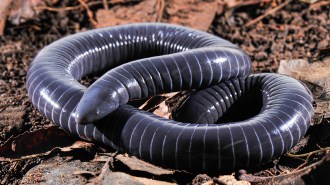 Life
LifeBizarre caecilians may be the only amphibians with venomous bites
Microscope and chemical analyses suggest that, like snakes, caecilians have glands near their teeth that secrete venom.
-
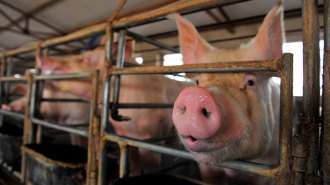 Health & Medicine
Health & Medicine4 reasons not to worry about that ‘new’ swine flu in the news
Researchers identified a pig influenza virus that shares features with one that sparked the 2009 pandemic — that doesn’t mean another one is imminent.
-
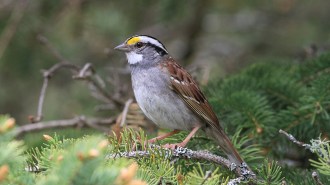 Animals
AnimalsA sparrow song remix took over North America with astonishing speed
A variation on the white-throated sparrow’s song spread 3,300 kilometers in just a few decades.
By Jack J. Lee -
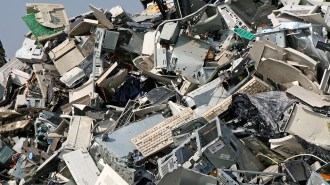 Earth
EarthEarth’s annual e-waste could grow to 75 million metric tons by 2030
Unwanted electronic waste is piling up rapidly around the globe, while collection and recycling efforts are failing to keep pace, a new report shows.
-
 Health & Medicine
Health & MedicineWhy COVID-19 is both startlingly unique and painfully familiar
As doctors and patients learn more about the wide range of COVID-19 symptoms, the coronavirus is proving both novel and recognizable.
-
 Space
SpaceA newfound exoplanet may be the exposed core of a gas giant
A planet about 734 light-years away could be a former gas giant that lost its atmosphere or a failed giant that never finished growing.
-
 Climate
Climate4 ways to put the 100-degree Arctic heat record in context
June’s record heat in Siberia is part of a much bigger picture of dramatic climate change in the Arctic.
-
 Science & Society
Science & SocietyThe U.S. largely wasted time bought by COVID-19 lockdowns. Now what?
As states reopen, most don’t have adequate systems in place to test, trace and isolate new COVID-19 cases, setting the stage for future outbreaks.
-
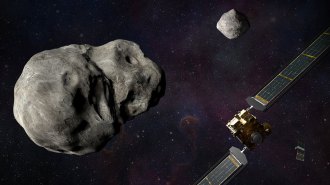 Planetary Science
Planetary ScienceAn asteroid’s moon got a name so NASA can bump it off its course
A tiny moon orbiting an asteroid finally got a name because NASA plans to crash a spacecraft into it.
-
 Health & Medicine
Health & MedicineHere’s what we’ve learned in six months of COVID-19 — and what we still don’t know
Six months into the new coronavirus pandemic, researchers have raced to uncover crucial information about SARS-CoV-2. But much is still unknown.
-
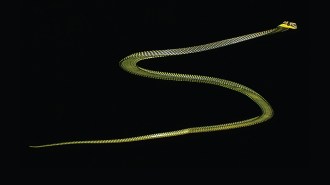 Life
LifeHere’s how flying snakes stay aloft
High-speed cameras show that paradise tree snakes keep from tumbling as they glide through the sky by undulating their bodies.
-
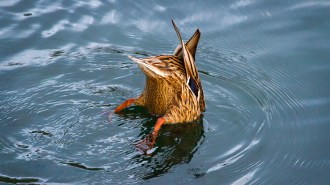 Life
LifeFish eggs can hatch after being eaten and pooped out by ducks
In the lab, a few carp eggs survived and even hatched after being pooped out by ducks. The finding may help explain how fish reach isolated waterways.